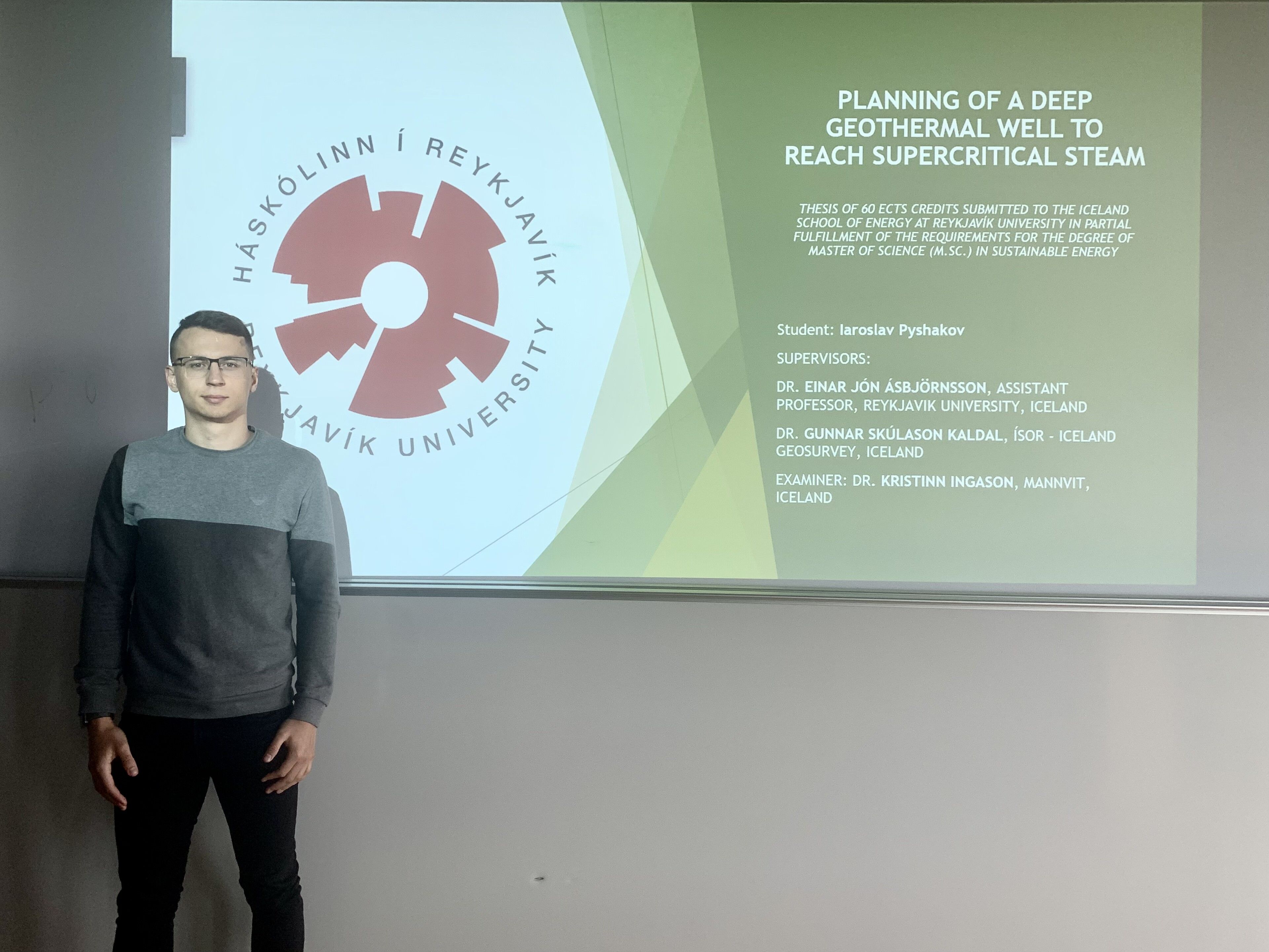MSc Thesis: Planning of a Deep Geothermal Well to Reach Supercritical Steam
REYKJAVIK, May 25 - MSc in Sustainable Energy candidate, Iaroslav Pyshakov, successfully defended his master's thesis where he investigates the Planning of a Deep Geothermal Well to Reach Supercritical Steam, to be theoretically drilled in the Hengill geothermal area of Iceland. Iaroslav's work was supervised by Dr. Einar Jón Ásbjörnsson from Reykjavik University and Dr. Gunnar Skúlason Kaldal, ÍSOR Engineer. Examination was conducted by Kristinn Ingason , Section Manager at Mannvit.

Iaroslav begins by emphasizing the development of geothermal energy, which has been constantly advancing over the past few decades and contributing to renewable solutions to counteract global changes caused by fossil fuels and power intensive industry. He acknowledges that drilling operation may be one of the most challenging parts in harnessing geothermal energy. Drilling has been done widely across the world and a lot of drilling issues have been faced. Deep geothermal drilling, with the well´s depth more than 2.5 - 3 km, is extremely difficult, e.g. due to chemical composition of deep fluids, high temperature and pressure conditions.
Iaroslav states the main objective of this MSc project, which is to design and calculate main parameters of a deep well, which may be theoretically drilled in the Hengill geothermal area. The planned well is vertical with total depth of 5000 m. He highlights the design of well, with emphasis on casing design, material selection and cementing solutions. He also leverages New Zealand´s code of practice for deep geothermal wells (NZS 2403:2015) as the main source to achieve objectives of this project. In some cases, he states, the code needs to be extended a due to its design limits. Therefore, special design solutions are implemented in some sections of this project. Pressure and temperature conditions at depth, exceeding the critical point (CP) for water, are based on three scenarios where the maximum possible temperature and pressure of the well 525°C and 240 bar. Iaroslav talks about another uncommon issue, which is the wellhead design, where a special class of wellhead is needed out of the scope of the pressure classes included in NZS 2403:2015.
He obtained and analyzed data during the preparation of this project, which shows downhole conditions are challenging reaching beyond the CP at superheated or supercritical conditions. He highlights the fact that possible drilling issues have been predicted to be avoided properly. Necessary sizes, materials and length have been chosen for casing and drill strings. Bentonite mud and water with polymers will serve as good coolant and cleaning agents. API G-type cement will create essential bond of casing and walls. Therefore, the deep well, potentially located in the Hengill volcanic complex or in the area with identical conditions, can be successfully drilled building on the presented drilling program using proper drilling equipment and relying on efficient well testing procedures, measuring and logging tools.
For further studies, Iaroslav suggests the possibility of drilling deep geothermal wells into supercritical conditions. He notes that some sections of this thesis can be a good basis for a proper research study. He then concludes with a summary: deep geothermal wells have a potential to improve the productivity of drilling operations and a chance of replacing several conventional depth wells by drilling one deep well. However, for that to be viable, several challenges need solutions, e.g. casing, wellhead, drilling fluid, cementing programs should be designed properly.
Congratulations Iaroslav on an excellent thesis defense!
